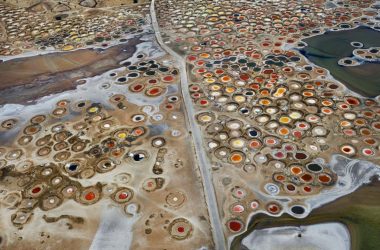
The Misconception of Pristine Wilderness
When we think of nature, we often imagine a remote and untouched place, far removed from human influence. We envision pristine wilderness, free from the presence of people, roads, fences, and power lines. However, this perception is flawed and blinds us to the true nature of our planet.
Over the course of millennia, humanity has had a profound impact on the entire world. Every organism alive today has been shaped by human activity in some way. Likewise, humans have evolved alongside and been deeply influenced by the plants and animals we share this planet with. Nature and humanity are interconnected, and the notion of a pristine ecosystem untouched by human hands is a myth.
The Damaging Consequences of Wilderness Rhetoric
It is important to challenge our beliefs about nature and wilderness. The rhetoric of a pristine and untouched wilderness has been used to justify the denial of land rights to Indigenous peoples and to erase their rich histories. This perpetuates injustice and hinders our ability to find sustainable ways of coexisting with nature for the common good.
Rethinking Our Relationship with Nature
We need to shift our perspective and move away from the concept of wilderness as being separate from humans. Instead, we should recognize that humans are an integral part of nature. By embracing this understanding, we open up opportunities to work alongside and within nature to protect and restore the environment.
Embracing Collaboration and Coexistence
In order to address the pressing environmental challenges we face, we must acknowledge and respect the knowledge and traditions of Indigenous peoples who have long lived in harmony with the land. Their wisdom and relationship with nature can provide valuable insights and guide us towards sustainable solutions.
Conclusion
The myth of wilderness as a pristine and untouchable realm is detrimental to both nature and humanity. It perpetuates injustice, hinders collaboration, and obstructs our ability to find meaningful and sustainable ways of coexisting with the natural world. By reevaluating our understanding of nature and embracing our interconnectedness, we can forge a path towards a more harmonious and equitable relationship with the environment.








